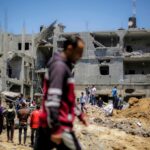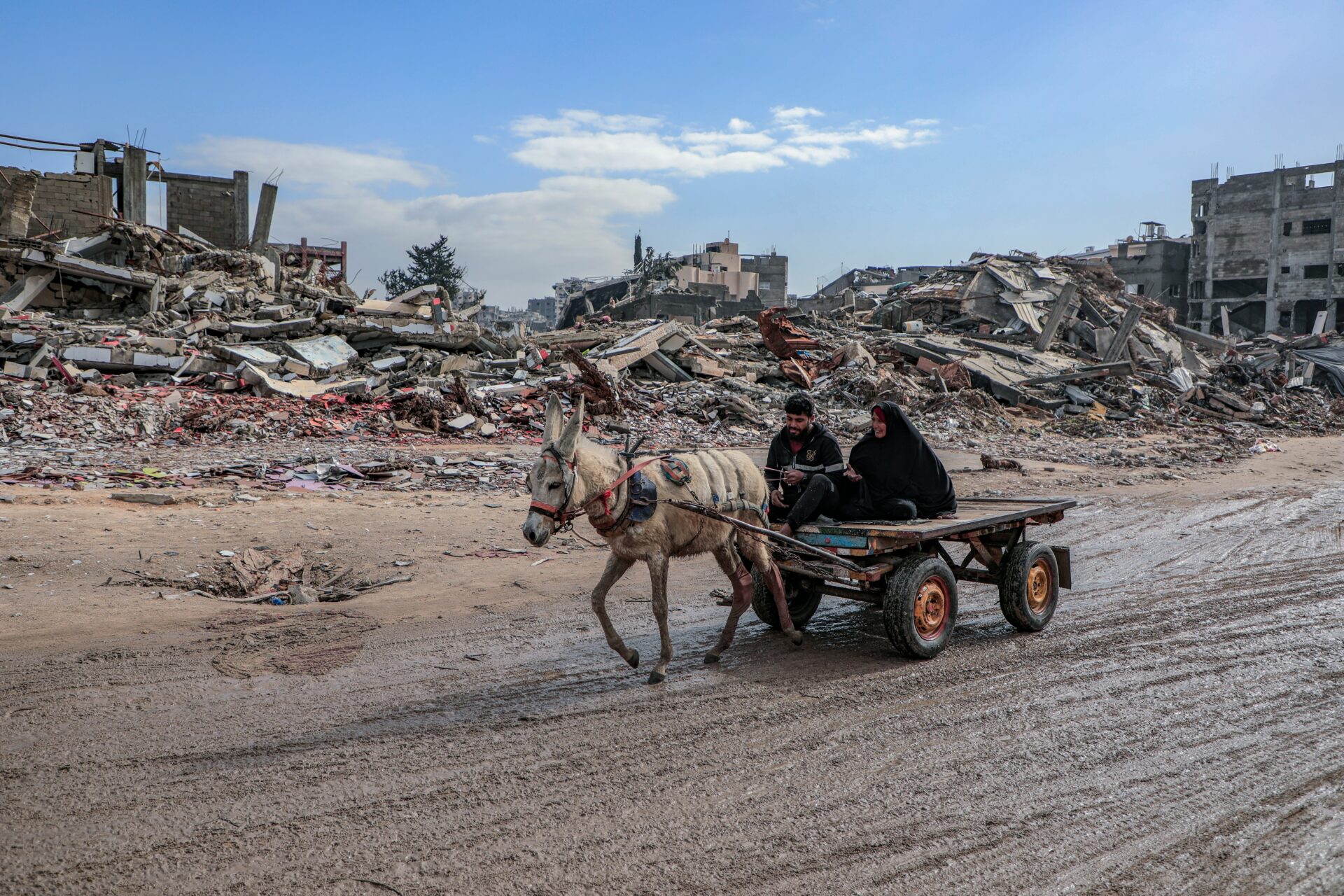Before Israel’s latest war on the Gaza Strip began in October 2023, 20-year-old Bilal Nassar considered himself a passionate young man who loved life and dreamed of earning a bachelor’s degree in IT. Hoping to eventually work at one of Gaza’s leading tech companies, he studied hard to get into university, which he saw as the first step toward fulfilling that dream. Yet, more than 20 months of war have shattered everything he had planned — Israeli attacks have destroyed both his university and home . His father, the family’s main provider, was killed, forcing Bilal to abandon his studies and take on the responsibility of supporting his mother and three younger brothers.
Bilal is just one of many. Across Gaza, life has become both a struggle to survive and a fight to live with dignity in a reality where even basic human rights are scarce. The Israeli war has taken everything people once cherished — homes, livelihoods, and dreams. For many, the war has burned away all they considered stable and beautiful. Many families have lost their breadwinners, and countless others have been stripped of the jobs they worked hard to earn — jobs that once carried their hopes and passions — leaving them unable to provide for the people they love.
Despite immense devastation and challenges, Bilal refuses to be anything other than resilient. He never gave up. Like many others in Gaza, he tirelessly seeks creative ways — no matter how small — to earn a living and support his family.
As the war presses on, Bilal has struggled to find a stable source of income. “The war has destroyed everything and turned Gaza into a wasteland with no opportunities,” he said, explaining that the conflict has devastated “the economy and deepened poverty to unbearable levels.”
The way he saw it, the only way forward was to think creatively: identify the daily problems people around him were facing and come up with simple, affordable solutions that could ease their struggles.
Bilal said that after severe flour and fuel shortages shut down Gaza’s bakeries, he began seeing people in his displacement camp — Israeli forces had destroyed his neighborhood, Shujaiya — struggling to bake bread. They were using metal pans over fires burning thanks to old clothes and plastic. Wood had become scarce and unaffordable. He explained that this method of baking is a tedious process for most people in Gaza, especially in summer — it requires immense effort and time to keep the fire going until the bread is ready, and the thick, ash-filled smoke it produces is suffocating.
Bilal recounted that he grew up observing his grandmother and mother bake bread in clay ovens. “It’s part of our family heritage,” he recounted. “I learned how to build and use one when I was a child. It’s easy to use, bakes bread quickly and well, and most importantly, it doesn’t consume much wood. That’s why I see it as the best project to earn a living and help feed my family.”
Bilal explained that setting up his oven cost only $30, which covered the price of stones, clay, and iron bars. For firewood, he used wood from his family’s tree garden, which the Israeli military uprooted during a military incursion into his neighborhood.
The war has destroyed everything and turned Gaza into a wasteland with no opportunities.
“People saw the clay oven as a savior,” Bilal added. “It eased their suffering and saved them time and effort. Most of the families in my camp come to me daily to bake bread and manakish. Thanks to it, I now earn around 60 shekels [about $18] a day, which is enough to cover essential needs for my family.”
Like Bilal, Ahmed Ali, 47, and his son Sohaib, 16, lived very different lives before the war began. They ran a small shop that served ice cream and refreshing drinks. Ahmed said he invested everything he had into the project, working tirelessly with his son to produce high-quality ice cream and a variety of beverages. “The project cost me $30,000,” Ahmed recalled. “My son and I were happy and proud that it was successful. People loved our treats, and the volume of orders was good.”
Then, the war destroyed everything he’d built. “My shop, the solar panels, the ice cream machines, and the refrigeration units — everything is gone,” Ahmed said.
“It was devastating to see the project I had poured my heart into reduced to rubble,” he explained, adding that, without an income, it felt as if he was “back to zero.”
Ahmed mentioned that his son, Sohaib, refused to give in to despair and kept encouraging him to start over using simple, low-cost means. “At first, it was hard for me,” Ahmed admitted, “but eventually, we decided to buy a small refrigerator and two solar panels to launch our modest project — just to earn a living under these harsh circumstances.”
With limited resources, Ahmed and Sohaib began producing simple, homemade cold drinks and syrup-topped milk pudding. Gaza’s unbearable summer heat was unbearable, Ahmed understood; people had few means of coping — no electricity, not enough water, and hardly any way to stay cool or hydrated.
Ahmed and his son hoped their treats would offer people in Gaza a small measure of relief and refreshment as summer temperatures soared.
Now, every morning, Sohaib says goodbye to his father and sets out with an insulated container he fills with their homemade treats. With a smile on his face, he makes his way through schools and shelters where displaced families now crowd together. Meanwhile, children rush to greet him, eager for the moment of sweetness that reminds them of life before the war.
Not far away, Bilal rises early and sits beside the clay oven he built by hand, feeding it small pieces of salvaged wood. As the fire crackles to life, the scent of freshly baked bread — a scent rooted in memory and heritage — spreads through the camp.














